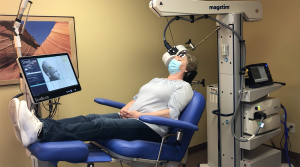Exercise’s Beneficial Effects on Sleep Quality and Insomnia

Despite the fact that sleep is essential for general health and wellbeing, many people experience sleep disorders like insomnia. The inability to fall asleep, stay asleep, or get restorative sleep is known as insomnia, and it can have serious consequences for both mental and physical health. Exercise is one very beneficial strategy for treating insomnia, while there are many other interventions as well. This article investigates the benefits, methods, and real-world issues of adding exercise to a sleep-promoting regimen in order to better understand how it can enhance sleep quality and lessen insomnia.
Recognizing the Effects of Insomnia on Health
A common sleep ailment affecting people of all ages, genders, and backgrounds is insomnia. Particularly chronic insomnia can have effects that go far beyond just disrupting sleep. Increased risks of obesity, diabetes, heart disease, depression, anxiety, and cognitive decline are linked to it. The intricate relationship between health and sleep emphasizes how crucial it is to find practical methods for treating insomnia and encouraging restorative sleep.
Exercise’s Benefits and Mechanisms for Promoting Sleep
The numerous health advantages of exercise have long been acknowledged, including enhancements to mood, muscle strength, cardiovascular fitness, and general quality of life. Regular physical activity can also have a good impact on the length and quality of sleep, according to research that has focused more on the connection between exercise and sleep in recent years. The benefits of exercise on sleep are caused by multiple mechanisms:
Regulation of Circadian Rhythms
Physical activity can aid in the synchronization of the circadian rhythm—the body’s internal clock—with the outside world. The time and quality of sleep are improved by exercise by encouraging regular sleep-wake cycles.
Research has demonstrated that physical activity increases the creation of endorphins, which are naturally occurring mood enhancers, while decreasing levels of stress hormones like cortisol and adrenaline. Exercise improves the quality of the sleep environment by reducing tension and anxiety.
Temperature Regulation
During physical activity, exercise causes the body’s temperature to rise; afterwards, it falls. By telling the body that it is time to rest, this dip in body temperature might help the onset of sleep.
Promotion of Sleep Homeostasis
Physical activity can improve sleep homeostasis, which is how the body maintains a healthy balance between waking and sleep. Engaging in physical activity raises the body’s demand for recuperation, resulting in more profound and rejuvenating sleep.
Exercise has many advantages for sleep than just physiological ones. Regular physical activity can also help to develop feelings of mastery, accomplishment, and self-efficacy—all of which have a favorable effect on mood and general wellbeing. Exercise also offers a chance for social connection and contact, which can improve resilience and mental health even more.
Exercise for Supporting Evidence in the Management of Insomnia
Numerous studies have shown how effective exercise is at enhancing the quality of sleep and easing the symptoms of insomnia. The Journal of Sleep Research published a meta-analysis that examined 49 randomized controlled trials with a total of 2,400 participants. The results indicated that exercise interventions significantly improved the quality of sleep overall, sleep efficiency, sleep onset latency, and total sleep time. These gains were shown in a number of demographics, including older adults, persons with chronic insomnia, people who were depressed or anxious, and people who had illnesses like fibromyalgia or cancer.
The impact of exercise on sleep can vary depending on its kind, level of intensity, length, and timing. Any type of physical activity has the potential to help sleep, but research on the benefits of aerobic exercise, resistance training, and mind-body practices like yoga and tai chi has been especially thorough. Exercise that is aerobic in nature—characterized by consistent moderate-to-intense activity that raises heart rate and breathing—seems to be particularly useful in improving the quality of sleep and easing the symptoms of insomnia. For maximum adherence and advantages, people should select activities they enjoy and can stick with for the long haul.
Doable Ideas for Including Exercise in a Sleep-Promoting Schedule
Including exercise in one’s daily routine can be a very effective way to lessen insomnia and enhance the quality of sleep. However, there are a few pragmatic factors to keep in mind:
Start Slowly and Progress Gradually
It’s crucial to begin with low-intensity exercises and progressively increase the intensity and duration of your workouts over time if you’re new to exercising or have pre-existing health concerns. Developing a safe and efficient workout program might be aided by speaking with a healthcare provider or fitness expert.
Finding satisfying and enjoyable physical activities is essential to long-term adherence. Whether it’s swimming, dancing, strolling, cycling, or participating in sports, pick hobbies or pastimes that make you happy.
Be Aware of the Timing
Although exercise might improve mood and alertness right away, its effects on sleep may not be felt right away. While some people prefer to work out in the evening, others may find that exercising earlier in the day—ideally in the morning or afternoon—is more conducive to sleeping. Try varying the timing and see how it impacts your sleep schedule.
Getting the most out of exercise for sleep requires consistency. To enhance general health and well-being, try to engage in regular physical activity most days of the week. An ideal regimen would include a mix of resistance, flexibility, and aerobic activities.
Listen to Your Body
Observe how exercise affects your body. Reduce the intensity or length of your workouts and give yourself enough time to recover if you feel pain, discomfort, or extreme weariness.
Final Thoughts
Exercise is an effective and widely available strategy for enhancing sleep quality and easing insomnia symptoms. Regular physical activity can improve both the quantity and quality of sleep by modifying circadian cycles, lowering stress and anxiety, controlling body temperature, and fostering sleep homeostasis. Exercise also provides a host of other health advantages, such as enhanced mood, memory, cardiovascular fitness, and general quality of life. Maximizing adherence and long-term success can be achieved by incorporating exercise into a daily routine, starting slowly, increasing progressively, and selecting activities that you enjoy and find fulfilling. Exercise has a lot of potential to improve general health and well-being and promote restorative sleep when combined with other insomnia management strategies.




